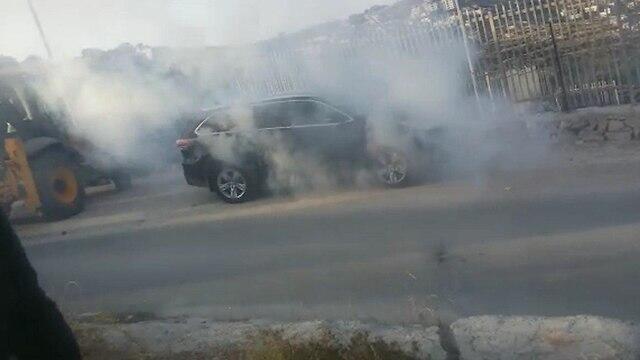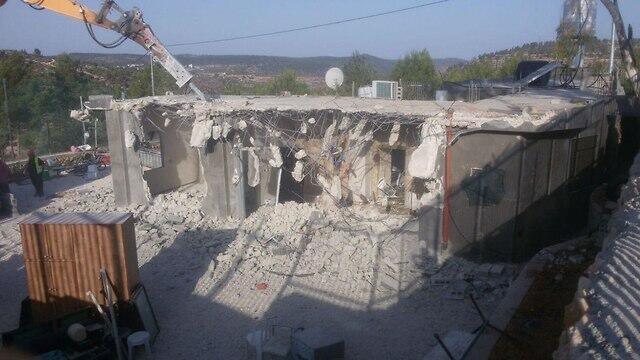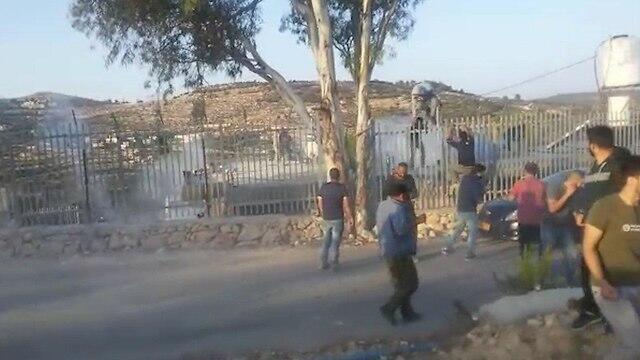Getting your Trinity Audio player ready...
Clashes erupted between security forces and residents of the West Bank village of al-Walaja during the demolition of what Israel says are several illegally built houses on Monday, leaving two Jerusalem municipality inspectors lightly wounded by stones that had been thrown at them.
and Twitter
The inspectors, who overlooked the evacuation of the houses, were treated at the scene by the Border Police.
According to Palestinian reports, several village residents were also wounded during the riots and one person was hospitalized. One eyewitness said an IDF soldier hit a local resident with the rifle stock.
Earlier, a team from the District Planning and Building Committee arrived at the scene with demolition orders for four houses and equipped with heavy engineering tools.
After the first two houses were demolished, around 150 local residents barricaded themselves in the two remaining homes in order to prevent the evacuation.
The Border Police fired tear gas and rubber bullets at the residents who disrupted the procedures, some of whom responded by throwing stones.
Riots at demolition site
(צילום: עיר עמים)
The residents later issued a statement bemoaning the loss of their homes.
“Today, 40 people have lost their homes, and there are another 800 people like them in al-Walaja. Border Police used gas and gunfire to get people out of the barricaded houses. In response, there was stone throwing and shooting," read the statement.
A senior Border Police source said the forces that were present at the scene to enforce the demolition of the illegal constructions faced a violent attack by rioters—who threw stones and other objects at the personnel, prompting them to respond with crowd-dispersal measures.
"Severe violence will not prevent the security forces from enforcing the peace and restoring order," stressed the source.
The village is located south of Jerusalem’s Gilo neighborhood, and although parts of it are located in Areas B and C, it is still within the municipal boundaries of the capital.
The city’s municipality does not provide al-Walaja with basic services such as waste collection and infrastructure construction.
According to the state, the houses were built illegally on land that does not belong to the village and in doing so, the residents prevented the expansion of the capital’s municipal area.
In the past, the residents submitted a proposal that would legally determine their area of residence, but it was rejected by the municipality.
Since the beginning of construction work along the security barrier in 2010, the Ministry of Interior has refrained from issuing demolition orders for homes in neighborhoods of Jerusalem that remain beyond its borders.
However, in 2016 a gradual shift in policy began, which threatens about a quarter of the houses in the village.







